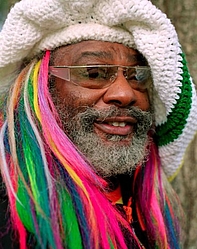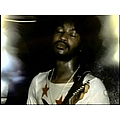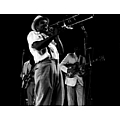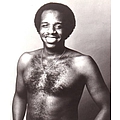Биография George Clinton & Parliament Funkadelic
Parliament-Funkadelic is a Funk music collective headed by George Clinton , that specialized in the style of music known as P Funk and performed under the names Parliament and Funkadelic (two bands comprised of the same members, recording for different labels), but also in a score of offshoot groups and solo ventures. Recording under a myriad of names, this group had thirteen Top Ten hits in the U.S. R&B music charts between 1967 and 1983, including six number one hits in the R&B Charts. They were elected into the Rock and Roll Hall of Fame in 1997. Collectively, the group has existed under various names since the 1960s and has been known for top-notch musicianship, politically-charged lyrics, outlandish concept albums, and memorable live performances. Today the band tours as either George Clinton and the P-Funk All-Stars or George Clinton and Parliament-Funkadelic. Early development The P-Funk story began in 1956 in Plainfield, New Jersey, with a doo-wop group formed by fifteen-year-old George Clinton. This was The Parliaments, a name inspired by Parliament cigarettes. By the early 1960s, the group had solidified into the five-man lineup of Clinton, Ray "Stingray" Davis, Clarence "Fuzzy" Haskins, Calvin Simon and Grady Thomas. In 1964 Clinton added a backing band made up of the young Plainfield musical talent that came into Clinton's barbershop, including Frankie Boyce, Richard Boyce and Langston Booth. [edit] P-Funk goes to Detroit The 1960s were a difficult decade for The Parliaments. In a recorded interview on one of his Family Series compilation albums, Clinton describes how he was so inspired by the success of Motown Records that he decided to move the band to Detroit and audition for the label. The Parliaments did not meet with great success at this time, recording only a handful on singles for the relatively minor label Revilot Records. These included a hard-won hit in 1967 with 'I Wanna Testify', but the band struggled to achieve recognition. During this time George Clinton also wrote songs for several established Motown acts, including The Jackson 5 and the Supremes and band members such as Eddie Hazel and Billy Nelson occasionally worked as studio musicians. Interestingly, the development of Detroit Techno has been linked to the Clinton influence.[citation needed] It must be stated, that the vast majority of the P-Funk albums were recorded in Detroit at United Sound Studios on Second Avenue. That Techno is likened to P-Funk therefore is no coincidence. Detroit has long felt, and been an integral part of the Funk. [edit] Transition to Funkadelic At the end of the 1960s, Revilot folded and took the Parliaments name with it. At this point George Clinton decided to have the backing band - The Funkadelics - come to the fore. By this point the Boyce brothers and Booth had been enlisted in the US Army and sent to Vietnam, and so a new band was assembled -- Billy Bass Nelson (bass), Eddie Hazel (lead guitarist), Tawl Ross (guitarist), Tiki Fulwood (drums), and Mickey Atkins (keyboards). They became Funkadelic, and the sound and look of the band became less clean-cut, showing strong influence from some of the band's contemporaries: Jimi Hendrix, James Brown and in particular Sly and the Family Stone. P Funk's connection to the Vietnam conflict grew as former band members and friends were affected by the war, resulting in two poignant songs: Come In Out The Rain (Osmium, 1970) and March To The Witch's Castle (Cosmic Slop), 1973). The sound hardened into a blend of psychedelic rock/R&B, and a purified, raw Funk music essence. Through their experimentation with distortion and feedback and their obnoxious attitude toward live appearances, Funkadelic gathered a small but devoted cult following. They recorded the underground classic album Funkadelic (Westbound Records, 1970) but widespread commercial success eluded them for the time being. Funkadelic recorded two more albums in the following year, Free Your Mind And Your Ass Will Follow and Maggot Brain. The same year, Funkadelic saw the arrival of master keyboardist Bernie Worrell, another Plainfield youngster and a classically trained musician, who opened up the band's sound into a whole new strange area of classically-oriented, avant garde funkiness. Billy Nelson and Eddie Hazel temporarily left the group in 1972 due to financial disputes, and Tawl Ross left due to drug problems. William and Phelps Collins, two brothers who eventually became more widely known as Bootsy and Catfish, respectively, joined the band. Both brothers were influential in the development of the P-Funk sound, particularly bassist Bootsy, and the result was America Eats Its Young (1972), a bizarre, distorted and brilliant work. [edit] The reemergence of Parliament The arrival of the Collins brothers altered the character of the Funkadelic sound, which did not please other band members. Bootsy left briefly after that album, while Catfish was an on-and-off member who eventually wound up playing mostly for his brother's solo efforts. By the time Bootsy came back in 1974, Clinton had decided to open up another front for The Funk. He had released a selection of the band's experimental songs under the name Parliament in 1970, as the album Osmium, and a number of singles followed on Holland-Dozier-Holland's Invictus record label. But the Parliament name languished for four years after that, until Clinton resurrected it in 1974 for Up For The Downstroke, which was basically recorded by Funkadelic, including Bootsy. The following year, Maceo Parker and Fred Wesley (also from the JBs) joined Parliament, enhancing the horns and adding a new, jazzy dimension to the music. The same year, singer Glen Goins, a naturally talented singer rooted strongly in the gospel, joined Parliament-Funkadelic as well as drummer Jerome "Big Foot" Brailey. This was 1975, the year of Chocolate City, an album-length tribute to the group's loyal fanbase in Washington D.C.. In 1976, Parliament released the classic album Mothership Connection. "Tear the Roof Off the Sucker (Give Up The Funk)" became the second Top Ten single for the group, peaking at number five on the US R&B charts, and the album became Parliament's first LP to go gold and platinum.[citation needed] Looking to capitalize on his group's recent successes and build an audience for future projects, George Clinton devised a stage show to tour stadiums usually frequented by the largest touring bands of the time. This tour was known as Parliament's "Earth Tour". The show comprised most of the elements of the P-Funk mythology. The central device was a space craft, The Mothership, which descended onto the stage. Out of this came Clinton in the guise his alter-ego, "Dr. Funkenstein." Footage of this ground-breaking tour is scarce but available (try youtube.com). Before the band went on the tour, they filmed a dress rehearsal of the show in a unused airplane hangar. These rehearsals are known as the Newberg sessions, and have gone down in history as the 'holy grail' for P Funk fans. The albums of the period had morphed into concept albums, with bizarre, space-age themes that carried elaborate and pointed political and sociological messages, and were usually linked between albums (see P-Funk mythology). In 1978, Parliament achieved its first number one single with "Flashlight" from the album Funkentelechy vs. the Placebo Syndrome. The album itself was another platinum success and one of the more influential albums of the later twentieth century. Many of the songs on the album continued to be performed by the band for decades. "Bop Gun" features the last lead vocal performance of vocalist Glenn Goins before he left the band in 1978. Bass guitarist Bootsy Collins comes into his own on four of the tracks, especially on the title cut "Funkentelechy". Original Funkadelic bass player Billy Bass Nelson provides a laid-back but forceful approach on "Placebo Syndrome". Keyboardist Bernard Worrell took center stage on almost the entire album, notably single-handedly revolutionizing dance music (and later new wave and rap) with his keyboard work (in particular, Minimoog bass synthesizer) on the signature hit "Flashlight" Parliament continued with a series of successful albums: The Motor-Booty Affair (1978), Gloryhallastoopid (1979) and Trombipulation (1980). The band scored another No. 1 hit in 1979 with "Aqua Boogie", from the Motor Booty Affair album. [edit] Funkadelic's Popularity Rises During the time of Parliament's success, Funkadelic continued to release critically-acclaimed albums, notably Cosmic Slop (1973), Standing On The Verge Of Getting It On (1974), Let's Take It To The Stage (1975), and Tales of Kidd Funkadelic (1976), which saw the emergence of a young Michael Hampton who replaced Eddie Hazel as lead guitarist and became an exceptionally talented musician in his own right. In 1976 Funkadelic moved from Westbound to Warner Brothers, releasing the ablums Hardcore Jollies (1976), One Nation Under A Groove (1978), Uncle Jam Wants You (1979), and The Electric Spanking Of War Babies (1981). In this period they had two No. 1 hits: One Nation Under a Groove in 1978 and (Not Just) Knee Deep in 1979. [edit] Bootsy's Rubber Band & Other Spinoffs With help from Clinton, Bootsy Collins formed Bootsy's Rubber Band, a fiercely-funky, bass-driven group, along with Catfish Collins, Mudbone Cooper, Robert Johnson, Frank Waddy, and Joel Johnson. Bootsy's Rubber Band was the beginning of a burgeoning P-Funk family, which multiplied in the late seventies, with the building swarm of musicians recording albums released under a multitude of names - including The Brides of Funkenstein, Parlet, The Horny Horns, The Sweat Band, Godmomma, Zapp, and The Sterling Silver Starship Band Bernie Worrell and Eddie Hazel also released excellent solo albums. Mutiny, Quazar, and Junie Morrison also released solo albums around this time, but they were not produced by George Clinton. [edit] Modern Day P-Funk George Clinton battled with financial problems and well publicized drug problems, while continuing to record during the 1980s. The remaining members of Parliament-Funkadelic recorded the 1982 hit album Computer Games, which included the much-sampled, No. 1 single, "Atomic Dog". The following year, he formed The P Funk All Stars, who went on to record Urban Dancefloor Guerillas in 1983. Other P-Funk artists continued with their own projects, while Clinton produced a series of solo rap albums during this time, of mixed quality. As the 1980s continued, P-Funk did not meet with great commercial success as the band continued to produce albums under the name of George Clinton as solo artist -- You Shouldn't Nuf Bit Fish(1983), Some of My Best Jokes Are Friends(1985), R&B Skeletons in the Closet(1986), and The Cinderella Theory(1989). However, at this time, Hip Hop music began to extensively sample P-Funk music, so remnants of the music were still heard regularly among fans of Hip Hop. By 1993, most of the old Parliament and Funkadelic albums had been re-released. A new generation began to pick up on the power of The Funk. The same year saw the return of a reconstituted P-Funk All-Stars, with the re-release of Urban Dancefloor Guerillas as Hydraulic Funk, and a scandalous new hip hop influenced album Dope Dogs, including the excellent 'All Sons Of Bitches'. In 1994, the group toured with Lollapalooza. P-Funk's fortunes seemed back on the rise when in 1996 they released T.A.P.O.A.F.O.M.(The Awesome Power of a Fully Operational Mothership), which served essentially as a reunion album featuring contributions from the band's most noteworthy songwriters from the earlier era (Bootsy Collins, Bernie Worrell, and Junie Morrison). But legal problems flared up again[citation needed], and it would be another ten years before another album would be released. In the intervening time, successive tours would slowly restore some of the broken ties between the original band members, together with an accumulation of new talent. In May of 1997, George Clinton and 14 other members of Parliament-Funkadelic were inducted into the Rock and Roll Hall of Fame. On July 23, 1999 George Clinton and Parliament-Funkadelic, along with former bandmates Bootsy and Phelps Collins and Bernie Worrell, performed on stage at Woodstock '99. In 2002, Bootsy released Play With Bootsy. In 2004, Rolling Stone Magazine ranked Parliament/Funkadelic #56 on their list of the 100 Greatest Artists of All Time.[1] And in 2005, Clinton released the latest P Funk All Stars album How Late Do You Have 2BB4UR Absent? at the time of the 50th anniversary of the founding of the original Parliaments. A new P Funk group called Children Of Production, extracted from the current P Funk All Stars line up featuring Kendra Foster and Shondra (Sativa Diva) Clinton has released a self-titled album of funk and hip hop for 2006. The band completed a tour of the United Kingdom on Monday 17 July 2006, having performed in Gateshead, Manchester, and Hammersmith in London Source: http://en.wikipedia.org/wiki/Parliament-Funkadelic
Тексты песен George Clinton & Parliament Funkadelic
| Title | |
|---|---|
| 1 | We Want The Funk |
Оставить комментарий
Что вы думаете об исполнителе George Clinton & Parliament Funkadelic? Напишите ваш комментарий.
Альбомы George Clinton & Parliament Funkadelic
| Title | Release | ||
|---|---|---|---|
| 1 | Computer Games |
Похожие исполнители
- Eddie HazelRock/Soul
- Alice ClarkRnb/Soul
- AalonSoul
- George ClintonJazz/Reggae/Soul
- Parliament70s/Soul
- Zapp & RogerElectronic/Rnb/Soul
















